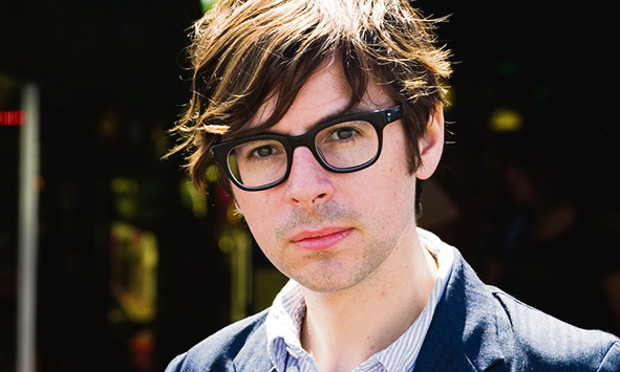How We Used to Live: a love letter to London

Hackney-based author Travis Elborough, author of How We Used to Live
How We Used To Live, which screened at last year’s London Film Festival and looks set to run on limited release this spring, is a love letter to a London that no longer exists, to that peculiar era after the Second World War when empire was dismantled yet Britain, and its capital city in particular, inspired a global cultural revolution.
Hackney-based writer Travis Elborough was one of a team of four who crafted the picture, along with members of pop group Saint Etienne Bob Stanley and Pete Wiggs, and the director Paul Kelly.
“As someone who usually writes books alone, I found it all enormously enjoyable and creatively quite liberating,” reflects Elborough.
The film is a story of the city told through footage collected from the BFI National Archive, with music from Saint Etienne and melancholic musings from Ian McShane’s narrator.
Setting the scene of the film, Elborough addresses its titular conceit: “The London of How We Used to Live is a London of landlines, vinyl records and cassettes, newspapers and news bulletins, its working days more readily defined, if not nine to five then something closer to it, its public transport still in public hands, ditto its utilities and much of its housing.”
But for all that the film is a celebration of yesteryear, How We Used To Live does not resort to ‘good old days’ sentimentality. “We can and probably do all worry that too much of the old stuff is getting lost, but equally the place would ossify if nothing ever changed,” Elborough says.
The film drifts back and forth in time and has a hypnotic, dream-like quality. This is best illustrated in a sequence where a curly-haired skateboarder glides down Tower Bridge, just barely avoiding pedestrians, while the music swells.
“That scene is just one of those absolute gems that you unearth when producing a film like this,” enthuses Elborough.
The narrative, spoken in McShane’s distinctive tone, amplifies this sense of London as a dream but is firmly rooted in reality. “The narrator is intended to be the kind of voice of memory, so we have things like defunct telephone dialling codes, the shipping forecast, and we have snippets of nursery rhymes, the names of roundabouts and road junctions, and quizzical remarks and questions, as well as thoughts about the city and London.”
An atmospheric documentary without coherent narrative is always going to be tough to sell to audiences, so how would Elborough pitch it? “How We Used to Live is The Spirit of ’45 for fans of Kent 45s – the classic northern soul label whose releases were cherished by mods back in the day,” he says. And if you understand that reference then this film was most certainly made for you.
See How We Used to Live at Curzon Soho on 16 April.
